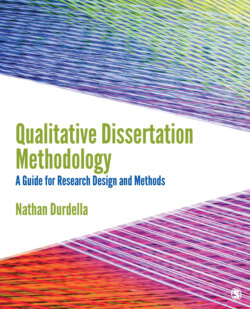Читать книгу Qualitative Dissertation Methodology - Nathan Durdella - Страница 37
На сайте Литреса книга снята с продажи.
Political position.
ОглавлениеWhile political position (Clark, 2006) may be overlooked, it is an extremely important element in the advising process—and one that has the potential to completely derail your plans to propose, defend, and file your dissertation. In fact, experience and position (Clark) in a department or program may play prominently in the process of advising, sometimes serving to block you from writing and defending a successful proposal or final dissertation. Key questions to ask here are as follows: What is the current rank of a proposed advisor—assistant, associate, or full? Has she or he held leadership positions in the department or program or even college, school, or university? Has she or he served as dissertation chair previously? If so, how long and with how many students? How does she or he get along with colleagues in the department or program? The idea here is to avoid working with someone who does not have the political clout or capital to manage a dissertation committee and effectively engage committee members on the committee. You can refer to Figure 1.1 for a visual representation of key characteristics in faculty advising in dissertation research contexts.
▼ Figure1.1 Key Characteristics of Faculty Advising in Dissertation Research Contexts
